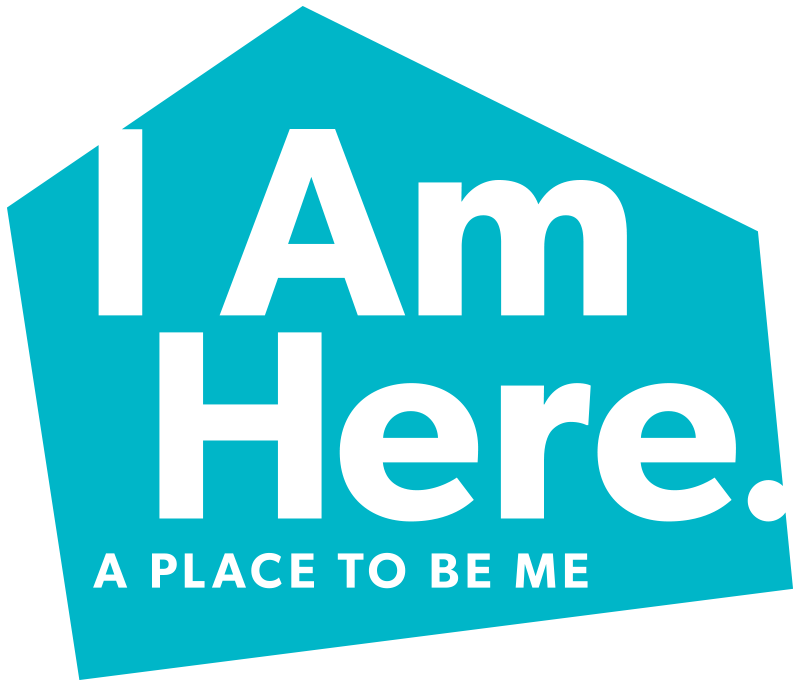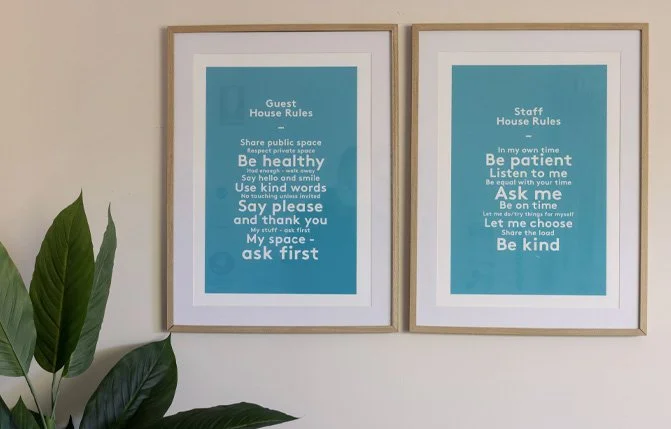You're sure to have lots of questions about our SIL and disability respite houses and the care we provide at I Am Here.
We've answered some of the most common ones to help you make the best decision.

-
A respite house, often referred to as a ‘respite care facility’ or ‘respite service,’ is a type of accommodation that provides temporary relief or a break for individuals with disabilities and their primary carers.
-
A supported independent living (SIL) home is a type of residential arrangement designed to provide support and accommodation for individuals with disabilities or special needs.
-
Yes, we do. You can either enjoy a short to medium term break with us in one of our disability respite houses or, if your NDIS package allows, stay with us as a full-time supported independent living (SIL) resident.
-
Yes, we do offer emergency respite care, where we have availability in one of our respite care houses.
-
Yes. We'd be delighted to talk to you about how we can help your loved one or client get out and about.
-
Yes! One of the benefits of having a clinical nurse manager with complete oversight of our service is that our support staff receive regular training and hands-on support for all participants, especially those with complex care needs.
-
Yes, our guests and residents all have their own bedrooms with a smart TV and wifi. SIL residents are to provide their own furniture for their room including a TV.
-
Yes, visitors are always welcome at our residential respite care and SIL houses. One of our values is hospitality, and visitors are welcome. However, we prefer if visitors give advance notice of planned visits by calling (02) 4088 8001.
-
We don't have set visiting hours in any of our SIL and short-term accommodation disability respite houses. However, it's always best to call first in case your loved one is on an outing. You can call 02 4088 8001 at any time.
-
Yes. Our minimum requirement for employment as a DSW team member is a Cert III in Individual Support, Cert IV in Disability, or previous professional experience. Many of our DSW staff are either studying or have university and/or tertiary qualifications.
Our staff are also trained on the job in the National Disability Standards, medication safety, manual handling, infection control, code of conduct, nutrition, PEG and enteral feeding, and bowel care.
-
Activities and outings are resident and guest-focused and cater to individual interests and needs where practical.
Working within the participant’s NDIS funding, these activities are tailored to individual needs to help them build a sense of independence and community involvement.
-
Yes. We operate an active night shift to provide optimum care 24 hours a day. As safety is paramount, our staff conduct regular rounds throughout the night to anticipate any guest needs.
-
We provide all meals and accommodate any special dietary requirements.
We provide breakfast, lunch, and dinner each day, and all meals are freshly prepared. We have an array of summer and winter menus to choose from, and residents and guests are encouraged to suggest their favourite meals for us to cook.
We favour daily fresh food preparation, which is healthy and nutritious. We also cater to gluten-free, diabetics, and other specialist diets.
-
Yes, meal choices are encouraged as we like to provide the best food experience during their stay with us, in accordance with their Mealtime Management Plan.
-
Yes, wifi is covered by SIL residents’ rent/board/lodging payments.
-
Yes, we have all the latest Netflix and Disney+.
-
Yes, all of our houses have air-conditioning in each room and communal areas.
-
To prepare them for their short break, the Care Team will discuss their specific requirements.
-
All prescribed tabletted medication must be in a Webster-Pak®. They are checked in and accounted for by a disability support worker (DSW) member using our Medication Reconciliation Form. This information is then charted to be given at the prescribed time as stated on the Webster-Pak.
Our staff can give pain relief, such as Panadol. However, our guests or their carer must sign a PRN Medication Consent Form (supplied by us) to allow us to administer pain medication should it be required during their stay.
-
We have three SIL/Respite homes:
18 Isabella Close, Elermore Vale (Google link)
6 Isabella Close, Elermore Vale (Google link)
31 Hanley Street, Wallsend (Google link)
All of our SIL and residential respite care houses are conveniently located with easy access to John Hunter Hospital, Newcastle City, major shopping centres in Glendale, Kotara and Charlestown, beaches, Port Stephens, Lake Macquarie and the Hunter Valley.
-
Yes, they can continue with their daily routines during a respite stay. We pride ourselves on providing our guests with the best home away from home experience.
-
Yes, we have hoists, lifts and mobility aids as required. We also have extra comfortable mattresses with memory foam and hospital beds available with bed rails.
-
There isn’t really a flat cost for respite care. Respite costing is based on the individual’s needs. NDIS Participants will have funding for respite that’s specific to their own needs and care requirements.
-
Board and Lodging
Ongoing costs include but aren't limited to:
• Groceries
• Shared household items
• Household utilities
• Motor vehicle maintenance.
Rent
Costs related to the service location include but aren’t limited to:
• Private bedroom
• Safety equipment
• Entertainment subscriptions
• Household appliances
• Installation of services
• Insurance(s)
• Council rates
• Shared household furniture, and
• Asset maintenance.
“I enjoy coming to I Am Here. It gives me a break away from the area I live in and, more importantly, it gives my wife some respite. I think it's important that carers get a break, too. The DSW's really look after me and the other guests. They treat us with kindness and respect. I always feel very welcome here.”
— David, guest
Read our story
I Am Here was set up by two mothers whose sons had experienced the trauma of an acquired brain injury (ABI). Learn more about our roots and how we've grown over the years.




